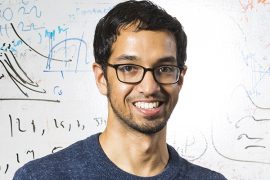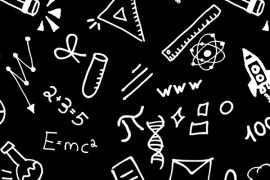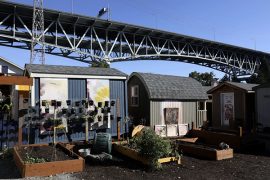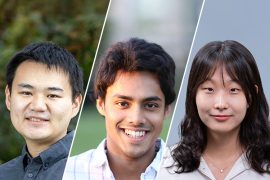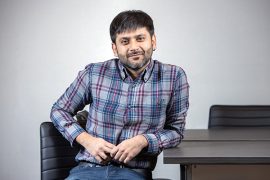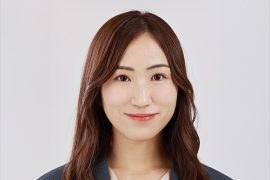Alumni News
The Allen School’s Alumni News features stories and updates that celebrate the achievements and experiences of our alumni.
-
February 17, 2026 -
UW News
Iyer, co-director of the interdisciplinary CS for the Environment Initiative, was recognized among the 2026 class of fellows for his early-career efforts to address sustainability challenges — from recyclable electronics, to battery-free robotics, to AI-optimized hardware design.
-
February 4, 2026 -
UW News
In a paper published in the journal Nature, a team of Allen School and Ai2 researchers unveiled OpenScholar, a system that can cite scientific papers as accurately as human experts and incorporate new research after it has been trained.
-
December 9, 2025 -
GeekWire
A team co-led by Allen School professor Sheng Wang and Ph.D. alum Hoifung Poon unveiled GigaTIME, a multimodal model for generating detailed data on cancer progression and immune response from standard pathology slides — at a fraction of the time and cost of prior methods.
-
December 4, 2025 -
Allen School News
In a Q&A, professor Kurtis Heimerl and postdoc Esther Han Beol Jang (Ph.D., ‘24) discuss their work with residents of two Seattle tiny house villages on how they can leverage smart technologies to improve living conditions, balanced against concerns such as cost and continuity of deployment.
-
December 2, 2025 -
GeekWire
Ehsani (Ph.D., ‘21) is the “brilliant, dedicated and intuitive” co-founder and CEO of Vercept, which has developed an AI tool called Vy that automates repetitive tasks to enable humans to focus on more creative pursuits.
-
October 29, 2025 -
Allen School News
Professors Simon Shaolei Du and Ranjay Krishna, and Sewon Min (Ph.D., ‘24), now faculty at University of California, Berkeley and a research scientist at Ai2, were honored by MIT Technology Review for their work in AI, large language models, computer vision and more.
-
October 8, 2025 -
Allen School News
Mahajan (Ph.D., ‘05) was recognized for his work on Batfish, an open source network configuration analysis tool that helps find errors and prevent costly outages that could disrupt air travel, banking, communications and more.
-
October 2, 2025 -
Allen School News
Asai (Ph.D., ‘25), research scientist at Ai2 and incoming faculty at Carnegie Mellon University, was recognized for her pioneering research that has helped establish the foundations for retrieval-augmented generation (RAG) and showcase its effectiveness at reducing LLM hallucinations.
-
September 25, 2025 -
Allen School News
Allen School researchers earned multiple awards at the 63rd Annual Meeting of the Association for Computational Linguistics for laying the foundation for how AI systems understand and follow human instructions, exploring how LLMs pull responses from their training data, and more.
-
September 10, 2025 -
Allen School News
To help Reddit moderators make data-driven decisions on what rules are best for their community, a team of researchers in the Allen School’s Behavioral Data Science Group and Social Futures Lab conducted the largest-to-date analysis of over 67,000 Reddit rules and their evolution.

